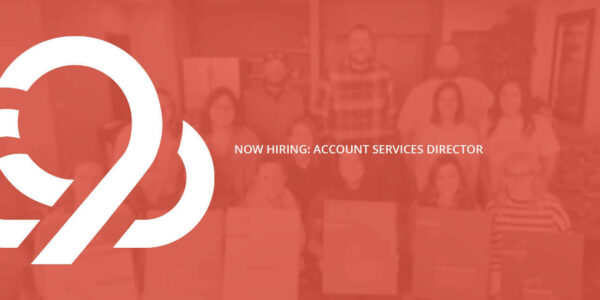
What Babe Ruth Taught Us About Digital Marketing
Let’s hop into the DeLorean. I want to take us back to October 1, 1932.
We’re at Wrigley Field, watching game three of the World Series. It’s top of the fifth, and Babe Ruth is up to bat.
Sports fans in 2018 know what happens next.
As he steps up to the plate, Ruth takes a moment to gesture toward the center field fence, then promptly cranks the greatest home run in baseball history.
This moment isn’t remembered simply because it was during the World Series — or even because it happened to be the Bambino’s final post-season home run. It’s remarkable because he did exactly what he intended to do. If he had not pointed, I wouldn’t be writing about it 85 years later.
Accountability Pays Off
Professional athletes are paid to perform this way (and arguably with this amount of swagger). They’re accountable to their stats. It’s their way of life.
It’d be great if we marketers could all hold ourselves so accountable. In reality, we get paid to serve, but not necessarily perform. We’re apt to separate ourselves from the metrics.
To illustrate my point, I’m going to share with you one of the most common interactions between digital marketers and their clients:
Client: “What is a good benchmark for this sort of thing?”
Marketer: “Well, it depends. [Insert wishy-washy answer here.]“
This interaction always disappoints everyone in the room — not because we don’t have the answers, but because of the timing. Why the heck didn’t we set that benchmark before the project?
Even if the blog post, email, ad, or campaign performed well, we can’t truly take full credit if we didn’t set an expected outcome.
We should always point to the stands before we swing the bat.
How to Be a Digital Marketing Slugger
Why is it so hard for marketers to commit to a performance metric before setting out on a project? Personally, I think it’s because performance isn’t clearly defined. Plus, our clients know that most digital marketing vendors all have a barnful of excuses at hand:
- “We didn’t have a good offer.”
- “We didn’t have enough time.”
- “The summer is just too busy for people.”
- “The holidays are just too busy for people.”
- “The list was too big.”
- “The list was too small.”
- “We’ve never done this before.” (This one is especially irritating for me)
- “We can’t get access to that sort of thing.”
- “We made it exactly how you asked us to make it.”
All of these are cliché excuses to a serious problem in digital marketing: we don’t always know what “good” is unless it affects our own personal wallets (which is a remarkable irony in marketing). We’re too self-preserving for real accountability.
You’re not going to hit a homer with every swing. (In fact, Ruth was also known as “The Strikeout King.”) But it doesn’t hurt to envision what success looks like for any given project.
If you want truly good performance, you have to define it ahead of time. You also need to talk about it with your team.
Recognizing Good Marketing Performance
The next time you hold a strategy meeting or peruse a vendor’s report, note the little things. Instead of dwelling on how many sales you made, consider your click rate, your bounce rate, and the real humans who are spending valuable screen time on your site. Those are what guide customers through your door, and those are the key metrics we track at 9 Clouds.
Committing time to the small things will pay off in real ways. This is why our team is currently defining specific benchmarks for every service in our portfolio:
Our creative team thrives with goals. We believe in this stuff! In addition to applying goals to services, we apply them to ourselves. We always know the answer to “What’s good?”
A benchmark — whether it’s a click rate, an open rate, or any rate — can help you know if your efforts are truly paying off.
Point to the stands, and hit your own home run. People will remember it.
How to Manage Your Digital Marketing
Need help managing your digital marketing?
Get in touch with us, and we’ll have Matt work through your free digital audit. We’re offering the resources, so the pressure of asking for help is off!



![Human vs AI A/B Test [Spoiler Alert: Humans Win!]](https://9clouds.com/wp-content/uploads/2024/02/Volvo-dealership-1-600x388.png)



